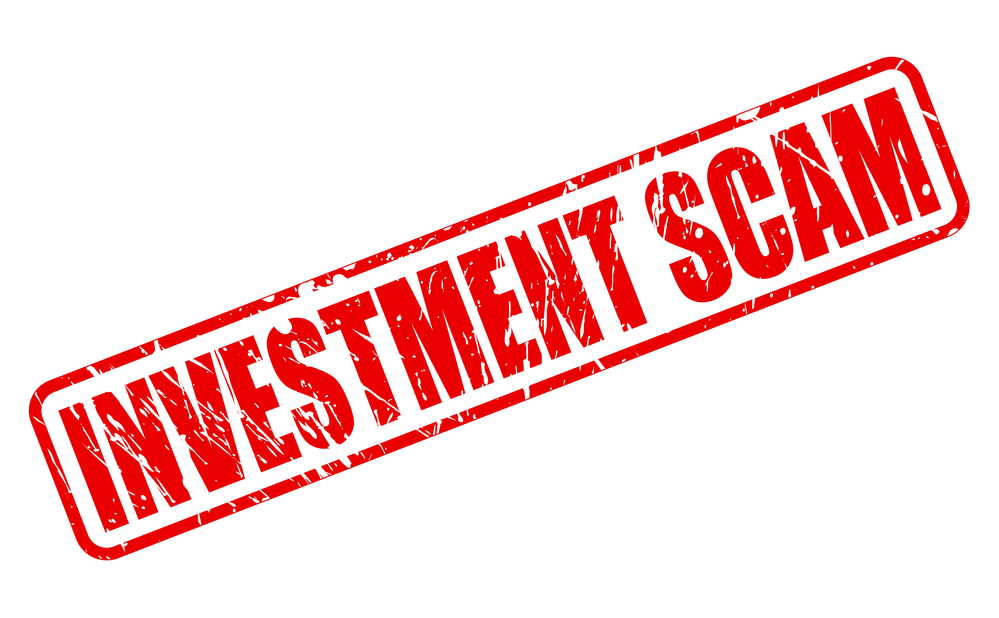

Be suspicious of anyone that offers you easy money. Scammers are skilled at convincing you that the investment is real, the returns are high and the risks are low. But there’s always a catch.
How to spot an investment scam
There are three main types of investment scams:
- The investment offer is completely fake.
- The investment exists, but the money you give the scammer doesn’t go towards that investment.
- The scammer says they represent a well-known investment company – but they’re lying.
In any case, the money you ‘invest’ goes straight into the scammer’s bank account and not towards any real investment.
Anyone can be scammed and every scam is different. Scams are often very hard to spot and can feel legitimate in the moment.
How scammers get you to invest
To get you to give them your money, a scammer may tell you they’re offering:
- high and quick returns or sometimes tax-free benefits
- share, mortgage, real estate or virtual currency investments, ‘high return’ schemes, option trading or foreign currency trading
- an opportunity with no risk or low risk, because you will:
- be able to sell anytime
- get a refund for non-performance
- have insured or ‘guaranteed’ transactions
- be able to swap one investment for another
- inside information, the opportunity to invest before a public float or discounts for early bird investors
ASIC is alerting investors about a suspicious investment opportunity through Beurax Corporation offering very high and ‘guaranteed’ returns. ASIC has received complaints from investors who cannot access their invested money.
Warning signs of investment scams
The investment offer may be a scam if the person:
- does not have an or says they don’t need one
- rings you repeatedly, keeps you on the phone, or emails you a lot
- says you need to make a quick decision or you’ll miss out on the deal
- offers you professional-looking prospectuses, brochures, share certificates or receipts, but their prospectus isn’t registered with ASIC
If you spot any of these signs, hang up the phone or delete the email. If you manage to record any of the scammer’s details, report them to the Australian Securities and Investments Commission (ASIC).
How to check an investment is real
Simple research to make sure an investment is legitimate could save you from losing money to a scam.
1. Ask questions and request information
Check the legitimacy of the person offering the investment by asking them:
- What is your name and what company do you represent?
- Who owns your company?
- Does your company have an AFS licence and what is the licence number?
- What is your address?
- Is your investing prospectus registered with ASIC?
If they try to avoid answering these questions, their investment offer is probably a scam. Hang up the phone, do not respond to the email. Stop dealing with the person or delete and block them if it’s through social media.
But, even if they can answer these questions, it doesn’t always mean the investment is legitimate.
2. Do your own research on the company
Don’t rely only on the information the person gives you to make your decision. Don’t be pressured to make a quick decision you could regret later.
Take these steps to do your own research — check:
- ASIC’s OFFERlist database — See if the company has lodged a prospectus with ASIC.
- Publicly listed phone directories — Check whether the address and contact details are correct.
- ASIC Connect’s professional register search — Check the company has an AFS licence or Australian credit licence.
- Our list of companies you should not deal with — Make sure the company name is not on our list.
- International Organization of Securities Commission’s (IOSCO) investor alerts — Make sure the company is not named.
- Our list of fake regulators and exchanges — Check if the investment offer mentions one.
If you invest through overseas companies and something goes wrong, you won’t be able to get help. A lower risk option is to invest overseas through licensed companies based in Australia.
Reduce the risk of investment scams
Make sure you don’t fall victim to an investment scam:
- Take simple steps to protect yourself from identity theft
- Always get independent financial advice before you invest
- Do your own checks on any investment opportunity to make sure it’s real.
- Remember the common signs and tactics so you can spot an investment scam.
- Don’t accept a message or friend request on social media from someone you don’t know.
- Make sure your privacy settings are up to date on your social media accounts.
- Be wary of random or unexpected contact, particularly if you have replied to something on a website or social media platform.
If you think you have been the victim of an investment scam, you should:
- Report it to ASIC or report it to your local police.
- Stop sending money to the company.
- Be wary of falling for a follow-up scam or offers to recover your money.
- If you have a financial adviser, reach out to them to check before handing over any money.
